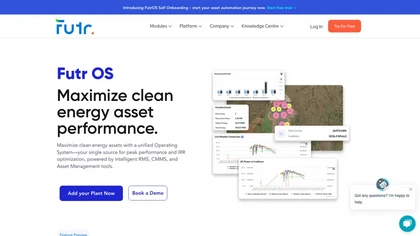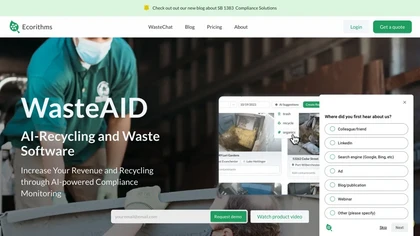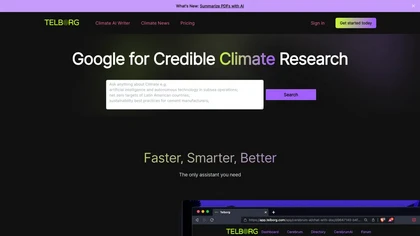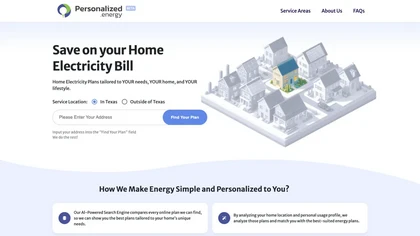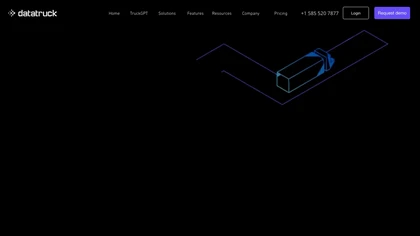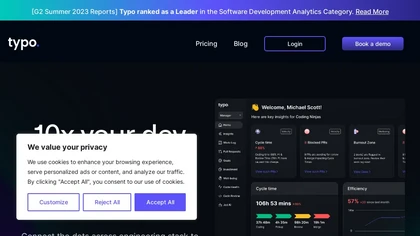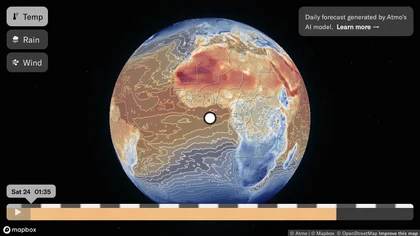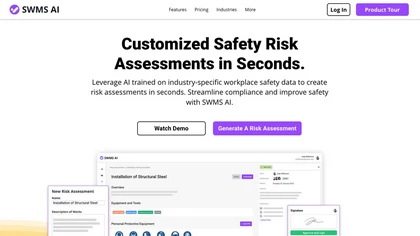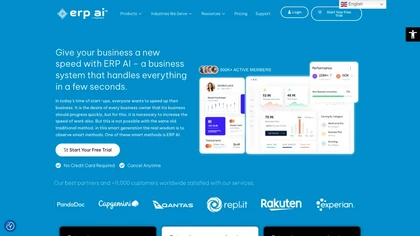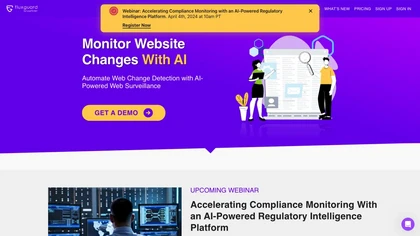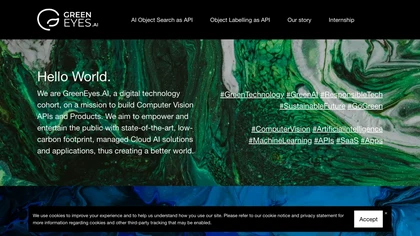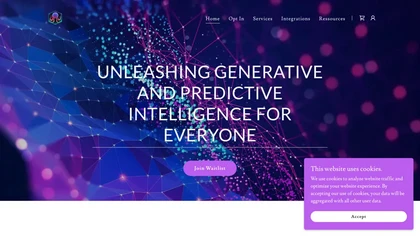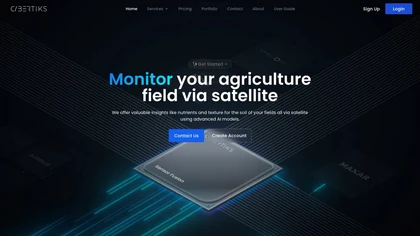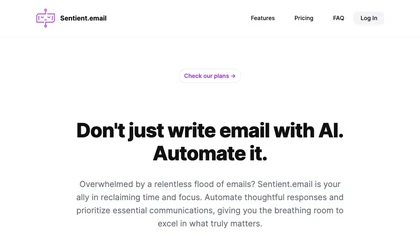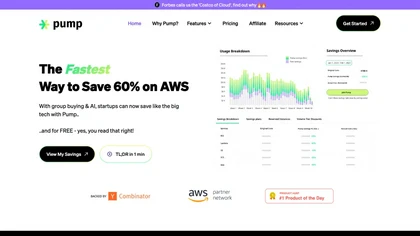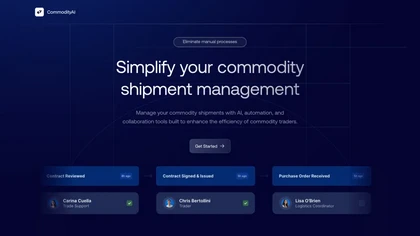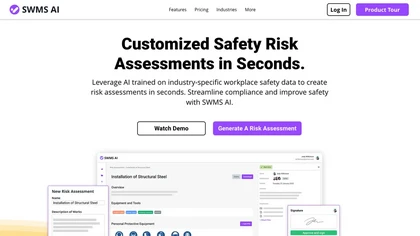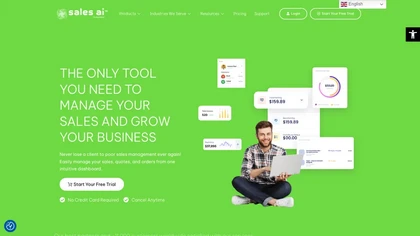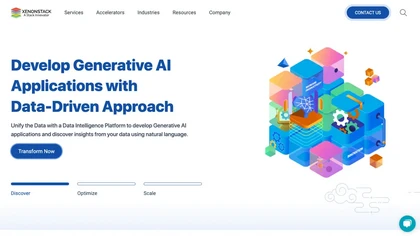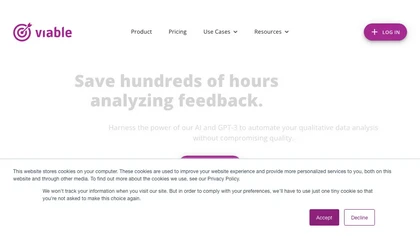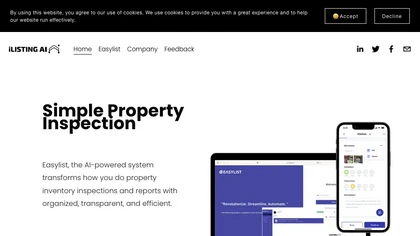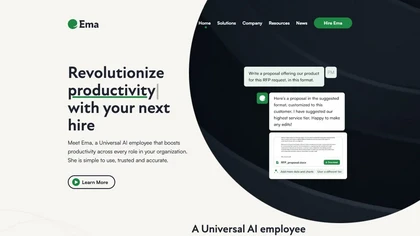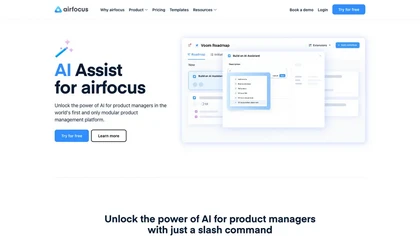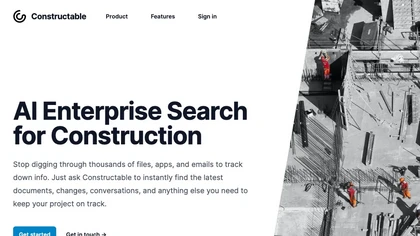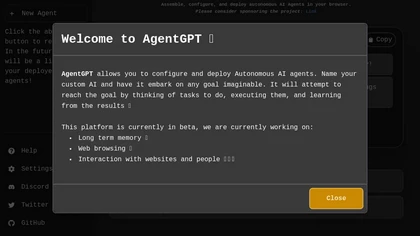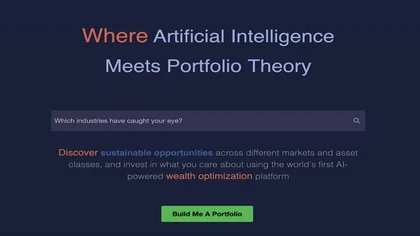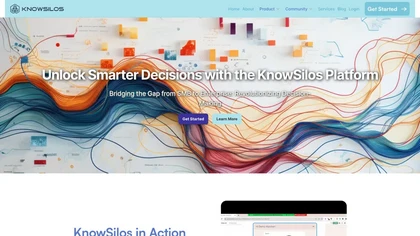AI use cases for Environmental Management
Generative AI can be applied in various applications for environmental management. Here are some examples to explore below for inspiration with AI tools to get you started with using AI in environmental management.
🛠️ 70 AI tools for Environmental Management
Explore a dynamic list of some of the most popular tools to get you started with various AI use cases and applications for Environmental Management to streamline your workflows and productivity today.
FutrOS features
- Unified operating system
- Warranty management
- Digital twin technology
- Automated performance insights
- Real-time alerts
WasteAID features
- Automatic route auditing
- Integration with existing systems
- Audit over 400k generators and 1m+ pickups
- Detect overflow incidents and identify contamination
- Tracking commercial account compliance
Telborg features
- Summarization of PDFs
- Custom knowledge base for insightful answers
- Generation of fact-filled first drafts on climate topics
- Structured and accurate inputs for presentations and reports
- Blog section for staying informed on latest climate topics
FolioProjects features
- AI project management assistant
- Data-rich dashboards for analysis
- Project portfolio management workflow
- Enterprise asset management life cycle support
- Predictive, prescriptive, and generative AI capabilities
Proxy features
- Energy-efficient upgrades
- Carbon footprint reduction
- Utility bill savings
- Tax credits and rebates
- Energy efficiency analytics
Green Suggest features
- AI-powered upcycling suggestions
- Personalized upcycling ideas based on user preferences
- Vast database of relevant content and DIY tutorials
- Reduction of textile waste
- Promotion of eco-conscious fashion choices
Greenifs.ai features
- Detect greenwashing errors
- Ensure compliance with green marketing guidelines
- Check social media content for compliance with region-specific regulations
- Offer targeted corrections and recommendations
- Help avoid legal issues related to environmental laws
🔥
Create your account, save tools & get personal recommendations
Receive a weekly digest of our handpicked top tools.
Unsubscribe anytime
GeniePM features
- Product requirements
- User stories
- Use cases
Reform features
- Modular building blocks for customized solutions
- State-of-the-art multimodal AI models for logistics documentation
- Automation of data capture for various documents
- Seamless integration with universal transportation management systems (TMS) through a universal API
- Embeddable customer dashboards for real-time data insights
Personalized Energy features
- Personalized.energy AI tool
- Designed to simplify finding best-suited electricity plans
- Analyzes location and personal usage profile
- Presents tailored options fitting unique needs
- Automates research and comparison process
Treads Tire Subscription features
- AI-powered car management subscription service
- Simplifies tire maintenance, alignments, oil changes, wiper blades, and auto insurance
- Ability to select best tires from top brands
- Offers services like tire rotations, repairs, replacements, and roadside assistance
- Real-time safety recall notifications and commitment to environmental sustainability
Timely Platform features
- Streamlined workflows
- Enhanced productivity
- Easy-to-use interface
- Real-time reporting
- SMS alerts for reducing no-shows
Datatruck features
- Automating manual processes
- Providing reporting analytics
- Offering actionable insights through AI/ML analytics
- Hyper automation capabilities
- Seamless data integration and real-time visibility
Typo features
- Measure effort and cost spent on innovation
- Technical debt
- Roadmap
- Identify sdlc metrics that impact development efficiency
- Remove blockers in real-time
edu720 features
- AI-powered content
- Powerful analytics
- Nanolearning capabilities
- Mobile learning capabilities
- Support for various industries
Earth.atmo features
- Daily temperature forecast
- Rain forecast
- Wind forecast
- Outdoor activity planning
- Agricultural planning
SWMS AI features
- Tailored risk assessments generation
- Customizable safety policies
- Personalized document generation
- Integration of AI assistant for safety information
- Streamlining compliance processes
Inc. features
- Real-time global threat assessment
- Continuous monitoring and analysis of vast data sources
- Actionable intelligence delivery
- Comprehensive insights into evolving threats
- Integration of advanced data analytics, machine learning, and predictive modeling
MEJ ERP AI features
- Intelligent automation
- Data-driven insights
- Real-time analytics
- Predictive forecasting
- Seamless integration capabilities
Fluxguard features
- Web Change Monitoring using generative AI
- Screenshots and pixel change detection
- Text change detection and network analysis
- Real-time or scheduled report dispatch
- Email reports with screenshots and text changes
Quensus features
- Automatic leak detection
- Water flow shut-off
- AI analytics for anomaly detection
- Remote leak detection and monitoring
- Extensive coverage
Unfig features
- Automated data capture from various logistics documents
- Universal TMS integrations for seamless connectivity
- Embeddable customer dashboards for real-time data insights
- Scraping information from numerous sources for visibility into logistics data
- Streamlining logistics operations with unprecedented speed and efficiency
empress.eco features
- AI-powered automation
- On-demand outsourcing solutions
- Software integrations
- Helpdesk services
- Industry-specific solutions
5-Out features
- Predicting sales
- Optimizing labor
- Optimizing purchasing
- Quick setup
- Getting started
We Are Engineer features
- Education and training focus
- Industry-level partnerships
- Insights from expert engineers
- Support for successful engineering careers
- Workshops, Q&A sessions, and competitions
Shortwave features
- Smart filtering
- Automated replies
- Priority inbox
- Sentiment analysis
- Task management
Momentum Radar features
- Monitoring social media platforms and influencers
- Predicting market trends and sentiment shifts
- Providing valuable insights and signals for decision-making
- Intuitive indicators for timing and entry point identification
- Focus on momentum indicators and on-chain data analysis
Servcy features
- Consolidate data from multiple tools into one central location
- Aggregated inbox to view and respond to various communications in one place
- AI support to prioritize and respond to important messages promptly
- AI capabilities for storing and managing documents as well as answering questions
- Features for tracking payments, analyzing time, merging calendars, and providing planning insights
AutoPredict features
- Predicting car lifespan
- Analyzing millions of data points
- Generating accurate predictions and statistics
- Offering an api for businesses
- Providing insights and statistics on its blog
GreenEyes.AI features
- Object search API
- Object labeling API
- Fast and reliable image recognition technology
- Supports up to 80 object classes
- Scalability on demand
LatenceTech features
- Real-time monitoring
- Prediction of network issues
- In-depth analysis
- Cloud-based analytics platform
- Utilizes machine learning and artificial intelligence
Empirical Health features
- Proactive primary care
- Integration of consumer wearables for health monitoring
- Consultation with doctors via mobile app
- Personalized care plans
- Compatibility with major insurance providers
Savvy Planner features
- Task Automation
- Data Analysis
- Language Processing
- Project Scheduling
- Deadline Prediction
SageFusion features
- Trend forecasting
- Statistical models and financial statement analysis
- Risk management through portfolio hedging
- Transparent and liquid funds through Interactive Brokers
- Quick fund withdrawal within 48 hours
Forescribe features
- Discover, analyze, and manage integrations of SaaS applications
- Provide real-time insights on SaaS usage and compliance
- Automated compliance checks for SaaS applications
- Offer cost optimization suggestions for SaaS applications
- Enhance transparency in digital landscape governance
Predict Expert AI features
- Crafting unique AI models
- Integrating intelligent applications and APIs
- Tailoring AI models and applications to address specific business needs
- Real-time operational insights
- Monitoring performance in real-time
PESTEL features
- Instant PESTEL analysis generation
- Detailed analysis covering Political, Economic, Social, Technological, Environmental, and Legal factors
- Utilizes descriptions provided to generate analysis
- Helps organizations understand and evaluate external macro-environmental factors
- Facilitates adaptation and success in the marketplace
PhotoSynth features
- Optimizing images for web and mobile apps
- Streamlining image management processes
- Support for popular image formats and automatic conversion
- No-code interface for managing image variations
- Automating image processing with backend systems
Cybertiks features
- Field monitoring through satellite imagery
- Utilizes advanced AI models for analysis
- Provides accurate metrics remotely
- Integrates precise AI models trained on thousands of fields
- Utilizes sensor fusion to integrate multiple data sources
Jungle AI features
- Real-time monitoring
- Abnormal behavior detection
- Issue resolution collaboration
- Customizable for different industries
- Data-driven decision making
Sentient Email features
- Automate thoughtful responses
- Prioritize essential communications
- Streamline email management
- Reduce anxiety over unanswered messages
- Maximize the benefits of ai-driven capabilities
Pump features
- Automated AWS savings optimization
- AI-powered algorithms for cost-effective AWS strategies
- Maximum security with limited access to user data
- Group buying for collective discounts on AWS
- Invite-based admin control for multiple AWS accounts
OpenALPR features
- Automatic license plate recognition
- Real-time vehicle attributes analysis
- Fast installation
- Searchable vehicle database
- International plate support
nOps features
- Automated AWS cost allocation
- Chargebacks and showbacks management
- Resource tagging
- Cost optimization tasks automation
- Rightsizing resources with a single click
CommodityAI features
- Automated shipment processes
- Auto-generated shipping nominations
- Real-time shipment tracking
- AI-driven performance analytics
- Smart data extraction
Hexowatch features
- Detects visual changes
- Monitors content changes
- Alerts users about keyword changes
- Monitors technology stack changes
- Offers customizable monitoring options
SWMS features
- AI risk assessments
- Safety Co-Pilot integration
- Customization options
- Quickly generate safe work sequences
- AI-powered safety recommendations
Soon Pulse features
- Pre-built pulses
- Natural language processing technology
- Kpi monitoring
- Trend analysis
- Mental health check-ins
LookBook features
- Sustainable outfits
- Tailored to individual tastes
- User-friendly interface
- Virtual models
- Step-by-step guidance
Aidaptive features
- Recommendations
- Pricing
- Search
- Merchandising
Lotse features
- Information Retrieval
- Seamless Tool Integration
- AI-Powered Reporting & Insights
Inventive features
- Streamline rfis, rfqs, security reviews, rfps
- Generate reliable answers with ai
- Reduce reliance on subject matter experts
- Save substantial time and effort
- Up-to-date content
Well Me Right features
- AI matching and Health Coach capabilities
- Personalized coaching
- Dietary tracking, nutritional guidance
- Guided meditation sessions
- Adaptive health partner
MEJ Sales AI features
- Sentiment analysis
- Natural language processing
- Identifying positive, negative, or neutral sentiments
- Insights into customer opinions and preferences
- Data-driven decision making
Mezzi features
- Personalized steps to save on capital gains taxes
- Reduce fund fees
- Optimize portfolio allocation through advanced calculators and AI-powered suggestions
- Compare performance and allocations across different accounts for easy rebalancing
- Ad-free platform prioritizing data privacy and security
XenonStack features
- Custom software development
- Platform engineering
- Enterprise DevOps
- Data warehouse management
- IoT integration
viable features
- Automated qualitative data analysis
- Customer feedback understanding
- Nlp technology
- Feedback analysis
Easylist features
- Automates property reporting
- Verifies inventory
- Documents claims
- Elevates processes
- Produces clear and cloud-based reports
idPOD features
- Data integration and analysis
- Integration of multiple data sources
- Advanced algorithms
- Customizable features
- Improving decision-making
Ema features
- Generative AI integration
- Emafusion™ model
- Data governance and security focus
- Integration with hundreds of enterprise apps
- Workflow automation across multiple applications
ThumbsUp features
- Collect user feedback
- Sentiment analysis
- Track keyword trends
- Automated data-driven recommendations
- Actionable insights
AI Assist by airfocus features
- AI-generated ideas and drafts
- Sentiment analysis
- Utilize slash commands
- Prompt features for PRDs and user stories creation
- Feedback sentiment analysis
Constructable features
- centralized project data
- ai powered insights
- realtime data sync
- support your existing software
AIEmployee features
- browser automation
- email-to-CRM/ERP data transfers
- automating tasks requiring human-like intelligence
- logging in budget and email expense tracking
- creating workflows
Incremental ai features
- Retail media measurement
- Commerce analytics
- Portfolio management
- Predictive analytics
- Cross-channel commerce analytics
Lebenmaster features
- 3-step process for goal forecasting
- Daily progress logs
- Task management functionality
- Brainstats feature
- Support for executing tasks faster and efficiently
DEVTOM features
- Real-time market data utilization
- AI-driven analyses
- AI sentiment analysis
- Competitive analysis
- Supply chain intelligence
AgentGPT features
- Configure
- Deploy
- Customize
- Embark on any goal imaginable
- Think of tasks to do
- Execute
- Learn
YC Application Optimizer features
- Data integration for structured knowledge graphs
- Extraction of insights from PDFs using NLP algorithms
- Creation of easily digestible reports with customizable templates
- Aggregation of large-scale data for quick analysis
- Visualization of critical information through persuasive reports
